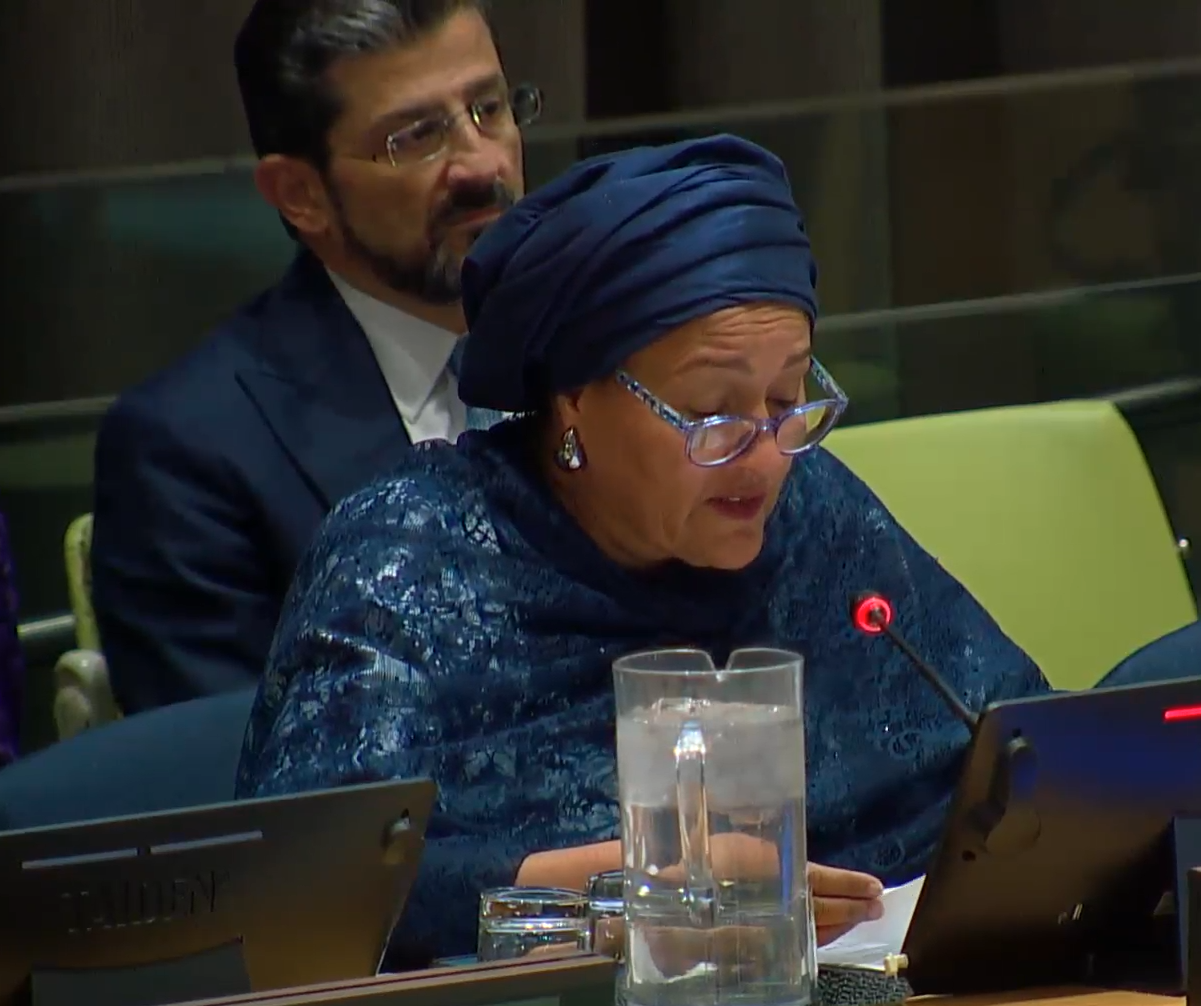Click here to watch the DSG message
Introduction of the report of the Secretary-General on strengthening and coordinating United Nations rule of law activities (A/79/117) before the Sixth Committee
Excellency, Ambassador Vinhas, Chair of the Sixth Committee, Excellencies, ladies and gentlemen,Allow me to begin by expressing my appreciation to Ambassador Vinhas, and the Bureau, for their excellent leadership of the Sixth Committee at the 79th session of the General Assembly. I also wish to extend my thanks to the Secretariat of the Committee for ably facilitating your work.
Distinguished Delegates,
The rule of law is often taken for granted.
When it is functioning well, it provides a sense of stability and security.
Yet in its absence, when it breaks down, we are painfully reminded of its vital importance and fragility.
From the illegal use of armed force, to systemic corruption, from the unlawful restriction of the freedom of speech, to the exclusion of women, or even from interference with judicial independence or another infringement of the legal order. When the rule of law is under attack, it gives rise to the erosion of rights, a weakening of public institutions, and a lack of respect for human dignity.
Above all, it is a betrayal of public trust.
Excellencies,
The report of the Secretary-General that I have the honour to introduce today offers examples of how the United Nations can help to tackle precisely these crises. It illustrates UN rule of law programmes that provide tailor-made assistance to Member States an effort to help bolster trust in public institutions.
The Report also includes efforts to strengthen the rule of law both at the national level and between nations.
It outlines significant developments to codify, develop and promote international instruments, norms, standards and rules, and summarises key developments of international and hybrid courts, tribunals and other accountability mechanisms.
During High-Level Week, the Secretary-General spoke about the purgatory of polarity that the world is facing.
Against this backdrop, international courts and accountability mechanisms are more important than ever in fostering a rules-based international order.
Among them, the International Court of Justice.
By providing a forum for states to resolve their differences through legal pathways rather than unilateral actions, the Court reinforces the principles of justice and accountability in the international community. Complying with binding decisions of the Court is critical to uphold the rule of law and build trust among nations.
Excellencies,
Today’s session is not about institutions speaking from on high, it is about rooting the international legal framework in inclusive participation and country level engagement.
This is how we reflect diverse perspectives and needs.
This is how we enhance the legitimacy of the rule of law.
And this is how we develop innovative approaches to our greatest global challenges.
We saw the value in this collaboration when just over three weeks ago, world leaders adopted the Pact of the Future.
Leaders committed to promote the rule of law and good governance at the national and international levels and to ensure equal justice for all.
Now it’s time for all of us – the United Nations, Member States and civil society, to make good on these commitments. To bring the Pact from drawing board to reality.
As Chair of the Rule of Law Coordination and Resource Group, I have committed to throwing the full weight of the Group behind streamlining the rule of law across United Nations programmes.
Let me end by expressing my deep appreciation to the esteemed delegations of Luxembourg and Mexico as co-facilitators of the resolution during this session. I wish you all an excellent discussion today.
Thank you.



